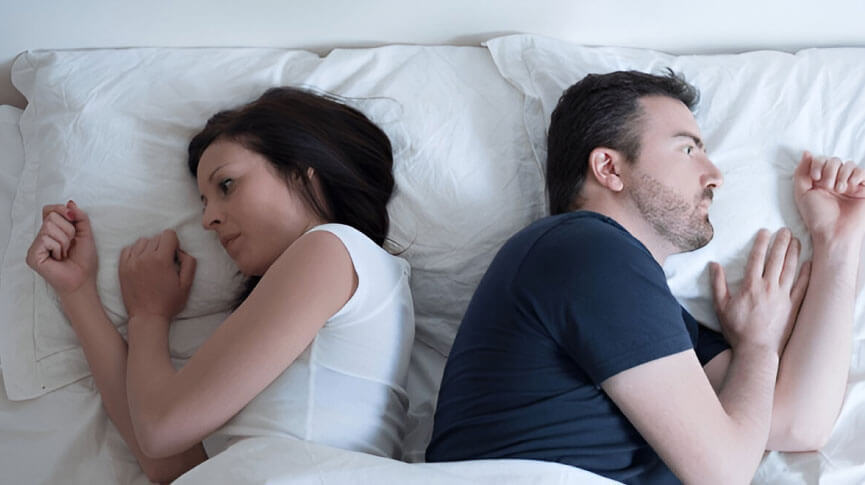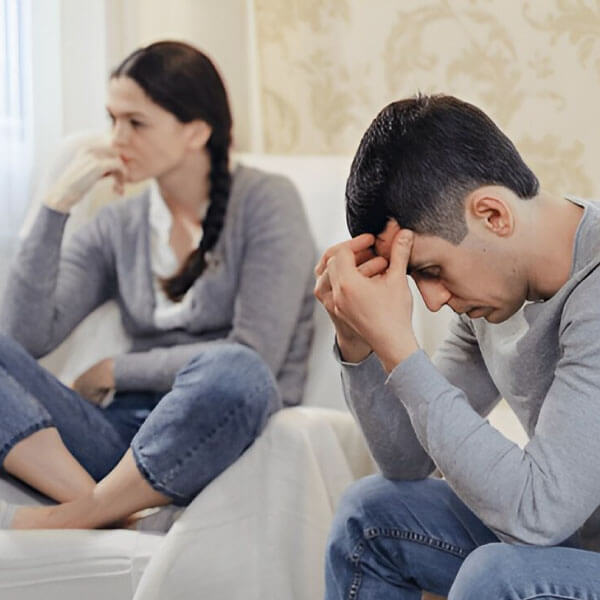
Depression can affect your sex life by lowering desire, energy, and emotional connection. It can also make arousal or orgasm difficult. If this sounds familiar, you're not alone. Visit our DOXXES store on SW Freeway/Chimney Rock to explore products that may help you feel more confident and connected.
What is Depression-Induced Sexual Dysfunction?
This condition happens when symptoms of depression affect your ability to enjoy or participate in sex. You may feel less desire, have trouble becoming aroused, or feel pain during intercourse. It can affect both the body and mind.
Some people experience:
- Superficial pain: Soreness on the surface
- Deep pain: Discomfort inside
- Provoked pain: Pain triggered by touch or movement
Why Does It Happen?
Mental and emotional causes:
- Long-term stress or low mood
- Anxiety about performance
- Past trauma or negative experiences
- Trouble communicating with your partner
Physical causes:
- Pelvic floor issues or infections
- Changes in hormones or brain chemicals
- Tight muscles or scarring
- Side effects from antidepressants
Often, both emotional and physical factors combine.
Real-Life Examples and How to Spot Triggers
Here are some examples:
- Losing interest partway through intimacy
- Pain during deep penetration despite good lubrication
- Trouble reaching orgasm, even with stimulation
- Soreness in the genitals after sex
To find your triggers:
- Track your mood, medication, and symptoms daily
- Notice differences on good vs. bad days
- Try new positions or lubricants to ease pain or stress
Who It Affects
Depression-related sexual issues can affect anyone—regardless of gender.
- Women may notice vaginal dryness, pelvic tension, or discomfort
- Men may experience erectile problems or delayed ejaculation
These issues can hurt confidence and relationships. But they are treatable with the right support.
How a Therapist Can Help
A sex therapist can:
- Ask about your history and symptoms in a safe, respectful space
- Screen for depression and how it affects your sex life
- Offer guidance for rebuilding intimacy—alone or with a partner
Ways to Cope and Heal
Talk therapy and emotional support:
- Helps manage guilt, sadness, or fear
- Couples counseling improves communication
Physical support:
- Get enough sleep and rest
- Add gentle exercise and healthy meals
- Work with your doctor to adjust medications that affect libido
Body awareness tools:
- Kegel exercises and pelvic floor work
- Relaxation methods like stretching and deep breathing
Join a support group:
You’ll meet others who understand and share advice.

How DOXXES Can Help
At Doxxes.love, we offer:
- Water-based lubricants to reduce friction and discomfort
- Pelvic floor tools for strength and control
- Gentle vibrators and prostate massagers to increase arousal
Each product comes with easy-to-follow instructions and safety tips.
Talking to Your Partner
- Use “I” statements like: “I’ve been feeling disconnected, and I want to work on it.”
- Talk calmly in a private space
- Avoid blame—focus on healing together
- Learn together by reading articles or attending sessions
- Ask for support early—don’t wait until things feel overwhelming
Visit DOXXES on SW Freeway/Chimney Rock
Stop by for a private and caring shopping experience. Our team is trained to help you find the right tools and offer helpful tips for comfort, pleasure, and peace of mind.
Conclusion
Depression-induced sexual issues are common—but treatable. With the right care, open communication, and supportive tools, you can rebuild trust, comfort, and joy in your intimate life. Visit DOXXES today for expert support and safe, empowering products.
FAQs
- How does depression affect sex?
It can lower desire, reduce energy, and make it harder to connect emotionally. - What are signs of sexual dysfunction from depression?
Low interest, delayed orgasm, and feeling detached during intimacy. - Can antidepressants make it worse?
Yes. Some medications affect libido, sensation, or climax. - Can I find support tools at DOXXES?
Yes! Our SW Freeway / Chimney Rock store has products that gently support comfort and arousal. - Does emotional support matter?
Very much. Encouragement and understanding help healing. - Should I talk to my doctor?
Absolutely. Your doctor may change your meds or suggest therapy. - Can lifestyle changes help?
Yes. Fresh air, movement, and good sleep all support mood and libido. - How do I talk to my partner about it?
Be honest—let them know it’s medical and you want to work on it together. - Is therapy better alone or with a partner?
Both work well. Solo therapy helps personal healing; couples therapy supports shared growth. - Can I recover fully?
Yes. Many people find relief and regain a healthy sex life with treatment.
